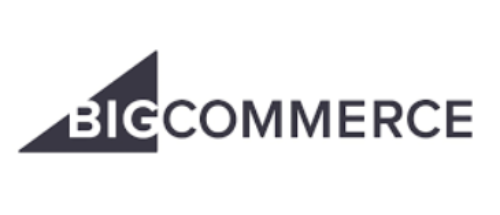
In today’s digital age, e-commerce has transformed the way we shop. From the convenience of browsing products on a smartphone to the excitement of finding a good deal, online stores offer a variety of benefits that traditional retail can't match.
This post explores vital strategies that can boost your online store's efficiency and appeal, from improving page speeds and optimizing for mobile users to streamlining the checkout process and securing customer transactions.
Whether you're looking to refine your site's design or enhance its functionality, the following tips will equip you with the knowledge to elevate your online presence effectively. Whether you're a seasoned business owner looking to expand online or a newcomer curious about starting your venture, understanding the fundamentals of e-commerce is key to navigating this dynamic industry.
Editor's Picks
| # | Name | Best For | Price | Rating | Image | |
|---|---|---|---|---|---|---|
| 1 | More Info | |||||
| 2 | More Info | |||||
| 3 | More Info | |||||
| 4 | More Info | |||||
| 5 | More Info | |||||
| 6 | More Info | |||||
| 7 | More Info |
Popular E-Commerce and Online Store
Squarespace

Squarespace Highlights:
- Set up an online store, book appointments, and sell services effortlessly on a single platform.
- Utilize built-in SEO tools, social media integration, and branded email campaigns to grow your business.
- Choose from flexible, industry-leading templates and customize them to fit your personal style.
- Gain insights into your website's performance with comprehensive analytics tools.
Squarespace provides a user-friendly platform to create stunning websites with drag-and-drop functionality, making it accessible even for those with no coding experience. It offers extensive customization options, allowing users to personalize their sites fully. Additionally, Squarespace's 24/7 customer support ensures that users receive help whenever needed.
Shopify

Shopify Highlights:
- Shopify offers a wide range of tools to build and manage an online store, including customizable templates and an app store for added functionality.
- Sell products online, in person, and globally through integrated sales channels like social media and marketplaces.
- Features Shop Pay, a one-click checkout process designed to enhance conversion rates.
- Manage inventory, track orders, and view real-time business insights from a single dashboard.
Shopify is a leading e-commerce platform designed for businesses of all sizes, enabling seamless online store creation and management. It offers robust features like payment processing, marketing tools, and shipping integration to streamline operations. With scalability and reliability, Shopify supports growth and adapts to the changing needs of modern businesses.
Big Cartel

Big Cartel Highlights:
- Offers a forever-free plan with essential features for small stores, including 5 product listings and basic customization.
- Provides free, SEO-optimized templates and allows advanced template customization for a unique store design.
- Manage your store, orders, and promotions from any device with mobile apps for iOS and Android.
- Supports various payment options, including cards, PayPal, and Afterpay, for both online and in-person sales.
Big Cartel is a user-friendly e-commerce platform tailored for artists and creators, offering straightforward tools to launch and manage online stores. It provides a range of features to help showcase products effectively, including easy-to-use templates and integration with popular social media platforms. Additionally, Big Cartel supports custom domain names and built-in marketing tools to help drive traffic and increase sales.
Etsy

Etsy Highlights:
- Etsy connects millions of buyers and sellers from around the world, focusing on handmade, vintage, and unique factory-manufactured items.
- Sellers can create personalized online storefronts with customizable options to reflect their brand identity and showcase their products.
- Sellers can promote their listings and increase visibility through Etsy's advertising platform, which targets relevant audiences.
- Offers various tools for managing orders, tracking inventory, and analyzing sales performance, helping sellers grow their businesses efficiently.
Etsy is an online marketplace primarily focused on handmade, vintage, and craft supply products, fostering a community of creative entrepreneurs. It provides sellers with tools to manage their shops, analyze performance, and engage with customers. Buyers can find unique items from various categories, supporting independent creators and small businesses globally.
BigCommerce

BigCommerce Highlights:
- Ideal for growing businesses with its ability to handle high volumes of traffic and transactions.
- Extensive customization options through open APIs and a variety of integrations.
- Advanced SEO features to enhance online visibility and attract organic traffic.
- Seamless integration with major marketplaces like Amazon, eBay, and social media platforms for wider reach.
BigCommerce is a robust e-commerce platform designed to help businesses create and scale online stores. It offers a user-friendly interface and a range of features, including payment gateways, shipping solutions, and inventory management. With strong security measures and reliable customer support, BigCommerce ensures a smooth and secure shopping experience for both merchants and customers.
Square Up

Square Up Highlights:
- Square offers hardware and software to accept payments via cards, mobile wallets, and online, making transactions seamless and secure for businesses.
- Manage inventory, sales, employees, and customer relationships with integrated tools like Square POS, Square Appointments, and Square Marketing.
- Access funds quickly with Square Checking and get customized loan offers based on sales, helping businesses manage cash flow efficiently.
- Integrate Square with existing business software through APIs and prebuilt integrations, enhancing functionality and streamlining operations.
Square provides innovative financial services and tools tailored for small to medium-sized businesses. It enables efficient management of transactions, payroll, and inventory through user-friendly software and hardware solutions. Additionally, Square offers marketing and customer engagement tools to help businesses grow and retain their customer base.
Bandzoogle

Bandzoogle Highlights:
- Sell music, merch, and tickets directly from your site without paying commissions.
- Features include music players, tour calendars, SEO for musicians, and fan data analytics.
- Dozens of responsive templates designed specifically for musicians, customizable in minutes.
- Connects seamlessly with popular services like YouTube, Soundcloud, PayPal, and Bandsintown.
Bandzoogle is a specialized website builder designed for musicians, offering tools to create professional websites with ease. It includes features like built-in music players and tour calendars, tailored for the needs of artists. Bandzoogle also provides customizable templates and integrates with services like PayPal and Bandsintown.
Optimizing Your Website for Better E-Commerce and Online Store Performance
Improving the performance of an e-commerce website involves a combination of technical enhancements, user experience refinements, and strategic marketing adjustments. Here are essential strategies to consider for optimizing an online store for better performance and increased sales:
Enhance Page Speed
Page loading time is critical for maintaining customer interest. Slow websites can lead to increased bounce rates and lost sales. Techniques such as compressing images, minifying CSS and JavaScript files, and leveraging browser caching can significantly reduce load times.
Mobile Optimization
With an increasing number of consumers shopping via mobile devices, a mobile-friendly website is essential. This includes responsive design elements that adjust to different screen sizes and touch-friendly navigation. Ensuring that the mobile version of the site is as comprehensive and easy to use as the desktop version can lead to better engagement and conversions.
Simplify the Checkout Process
A complex checkout process can deter potential purchases. Reducing the number of steps to checkout, providing clear instructions, and offering multiple payment options, including popular mobile payment systems, can help streamline the purchasing process and reduce cart abandonment.
Use High-Quality Images and Videos
Visuals are extremely important in e-commerce. High-resolution images and videos that allow customers to see detailed views of products can improve engagement and help in decision-making. Implementing zoom features and 360-degree views can enhance user interaction with the product.
Implement Search Engine Optimization (SEO)
Optimizing your website for search engines can increase visibility and attract more visitors. This includes using relevant keywords, optimizing meta tags and descriptions, and creating quality content that engages customers and encourages them to explore more of your site.

Secure Website Transactions
Ensuring that all transactions are secure is crucial for building customer trust. Using secure socket layer (SSL) certificates to encrypt data and displaying security badges can reassure customers that their personal and payment information is safe.
Regularly Test and Update the Site
Continuous testing and updating of the website are necessary to ensure optimal performance. Regularly checking for and fixing broken links, updating product listings, and refreshing content can keep the site relevant and functioning smoothly.
Personalize the Shopping Experience
Personalizing the shopping experience can lead to higher conversion rates. Techniques such as displaying recently viewed items, recommending products based on browsing behavior, and personalized email marketing can make shoppers feel understood and encourage purchases.
Implementing these strategies can significantly enhance the performance of an e-commerce website, leading to improved user satisfaction and increased sales. Each element should be regularly reviewed and optimized based on user feedback and analytics to ensure the website remains effective and competitive.
Navigating Challenges and Opportunities in E-Commerce and Online Store Management
Managing an e-commerce platform effectively requires addressing several challenges while capitalizing on emerging opportunities. Here are key aspects to consider:
Adapting to Evolving Market Trends
E-commerce is highly influenced by changing consumer preferences and technological advancements. Staying informed about market trends, such as the adoption of new payment technologies or the latest in digital marketing tactics, allows a business to adapt and remain competitive.
For example, incorporating augmented reality (AR) to provide virtual try-ons could enhance the shopping experience and boost sales.
Dealing with Logistics and Supply Chain Issues
Efficient management of logistics and supply chains is critical. Challenges such as delays in shipping, managing inventory, and handling returns can impact customer satisfaction. Implementing robust logistics solutions and using software that optimizes inventory management can mitigate these risks.

Handling Data Security and Privacy
As e-commerce businesses collect a significant amount of personal data, ensuring privacy and security is paramount. Compliance with regulations like GDPR and implementing advanced cybersecurity measures can protect against data breaches and maintain customer trust.
Expanding Internationally
Entering international markets presents both an opportunity and a challenge. It involves understanding diverse consumer laws, customs regulations, and cultural preferences. Developing a strategy that includes localized content and pricing, plus a logistics framework that supports international shipping, can facilitate this expansion.
Leveraging Artificial Intelligence (AI)
AI can transform various aspects of e-commerce from personalized shopping experiences to improved customer service via chatbots. Additionally, AI-driven analytics can provide deeper insights into consumer behavior, enabling more targeted marketing and product development.
Enhancing Customer Engagement
Beyond transactional relationships, engaging customers through loyalty programs, regular communication via social media, and tailored promotions can enhance loyalty and encourage repeat business. Understanding customer feedback through reviews and surveys also plays a crucial role in shaping the service and product offerings.
Sustainability Practices
Increasingly, consumers are favoring brands with sustainable practices. Integrating eco-friendly packaging, promoting sustainable products, or supporting environmental initiatives can resonate well with eco-conscious shoppers, potentially improving brand image and customer loyalty.
Addressing these challenges and leveraging opportunities requires a balanced approach of strategic planning, technological integration, and continuous improvement. Such proactive management not only helps in overcoming hurdles but also in harnessing the full potential of the digital marketplace.
Key Trends Shaping the Future of E-Commerce and Online Stores
Embracing New Payment Solutions
The rise of cryptocurrency and digital wallets is setting new precedents for payment flexibility in e-commerce. Merchants who adopt these payment methods early can attract a tech-savant customer base and stand out in a crowded market.

Integrating blockchain technology not only for payments but also for enhancing transparency in product sourcing and authenticity can further elevate customer trust and satisfaction.
Advancements in Voice and Visual Search
Voice-activated shopping and visual search capabilities are becoming increasingly popular, with consumers using voice assistants and image recognition technology to enhance their shopping experience.
Implementing these technologies allows customers to search for products more intuitively and aligns the shopping experience more closely with natural human behaviors, potentially increasing engagement and sales.
Growth of Social Commerce
Social media platforms are rapidly evolving into retail channels through features like shoppable posts and direct checkout options. Brands that leverage these platforms effectively can tap into a vast audience, providing a seamless transition from browsing to buying, which enhances impulse purchasing. Keeping pace with the algorithms and marketing tools offered by these platforms can yield substantial returns.
Expanding Marketplaces and D2C Channels
Online marketplaces continue to dominate, but there is a growing shift towards direct-to-consumer (D2C) sales channels. Brands are increasingly focusing on building their e-commerce ecosystems to gather rich customer data and control the customer experience more directly. This trend allows brands to personalize marketing, control pricing strategies, and build stronger customer relationships.
Rise of Subscription Services and Models
Subscription-based models are gaining traction across various product categories, including groceries, personal care, and entertainment. This model ensures recurring revenue and deepens customer relationships by providing continual value. E-commerce sites that offer subscriptions can benefit from predictable sales patterns and improved stock management.
Integrative and Cross-Platform Analytics
Leveraging advanced analytics across platforms can provide deeper insights into customer journeys that span multiple touchpoints. By integrating data from various sources-social media, web traffic, mobile apps-brands can achieve a holistic view of their consumer behavior and refine their marketing strategies accordingly.
Advanced tools using machine learning can predict customer behavior and help in decision-making processes to optimize sales and marketing efforts.
These emerging trends are reshaping the landscape of e-commerce, offering both challenges and opportunities. Staying ahead requires a blend of innovation, strategic adoption of technology, and responsive customer engagement strategies. Embracing these trends can lead to significant competitive advantages and long-term success in the digital marketplace.
Conclusion: E-Commerce and Online Stores
Navigating the world of e-commerce can seem daunting with so many platforms vying for attention. Whether you're setting up a boutique on Shopify, showcasing handmade goods on Etsy, or scaling an enterprise through Bigcommerce, the right tools make all the difference.
The ever-evolving landscape of e-commerce presents both thrilling opportunities and formidable challenges. As online shopping continues to grow, it is crucial for businesses to stay adaptable and responsive to the shifting dynamics of digital commerce.
By implementing the strategies outlined, such as optimizing website performance, enhancing user experience, and adopting innovative technologies, businesses can not only meet but exceed consumer expectations.
This commitment to continuous improvement and adaptation is essential for any e-commerce venture aiming to thrive in a competitive market. By staying informed and proactive, business owners can ensure their online stores remain relevant, engaging, and successful in attracting and retaining customers.
* Read the rest of the post and open up an offer
